Losing Hope on Yeonpyeong Island
The South Korean government has been criticized sharply for its response to the shelling of Yeonpyeong Island. The future for those residents who have returned to this transformed little place is uncertain.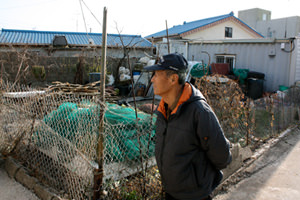
Yeonpyeong Island, South Korea — Late autumn is usually a time of calm in Korea. With the sky a plain blue, the humidity of summer has passed and the cold of winter has yet to settle. But on Yeonpyeong Island the future, unlike the sky above, is anything but clear.
The island was the site of a recent battle between North and South Korea. While the guns have been calm since, it’s now possible that the legacy of this squabble could be the permanent transformation of this little island. Most of the former residents are now saying they never want to go back; they are still in makeshift accommodations provided by the government or staying with relatives. Some have returned for short trips. The military presence on Yeonpyeong has grown. Civilians are restricted to a small area in the south; most of the island is off-limits. To many, it scarcely feels like home anymore.
Lee Jeong-kyu, who stayed in public bathhouse lodgings with many others who left, opted to return home. He is frustrated by the new state of his home and the government’s handling of the situation. The South Korean government has been criticized sharply for what has been seen as a weak response. He said, “From the government’s lips we hear that there is defense, that they will come quickly from every direction, from nearby to protect us so there’s nothing to worry about, but … have you seen the houses? There’s no one! There are no people here.”
The town has taken on an eerie, unsettling calm. Stray dogs and cats trot over the pockmarked roads. All the beachfront businesses appear abandoned.
“If the government could tell us exactly how they’re preparing and working to fix the situation, then we could relax, right? But nobody comes and tells us anything and a bomb could come and explode anytime. One thing I’m worried about is that North Korea isn’t done yet, that there’s more to come,” Lee continued.
There’s no good time for war, but the skirmish couldn’t have come at a worse time. In late November, families on Yeonpyeong Island prepare food for the winter. It is an annual tradition to harvest cabbage that is then pickled and stored to make kimchi, eaten throughout the winter. As residents took off in haste, home gardens were left full of rotting vegetables. Fishermen find the past couple of weeks to be the calendar’s most fruitful but this year they were prohibited from going out to sea, which resulted in huge losses.
The economy will have to struggle to recover, if it ever does. Businesses usually profit from tourism in the summer, which will no doubt suffer now that the island’s name is associated with conflict. Those who try to return to life on the island will have to deal with a shrunken population. As some return and some stay away, the splitting of the population may make life here unsustainable
It’s the uncertainty that bothers Ahn Hae-seong, as he is now faced with the dilemma of how to support himself. He said, “In a situation like this, we don’t know anything. We left and we came back, and now we’re trying to live but we have no idea what’s coming next.”
Residents of Yeonpyeong generally don’t have the specialized education and skills to work in South Korea’s competitive job market. Park Seung-ui is trying to rebuild the restaurant he operated with his wife. He used to earn most of his money from crab fishing but has been unable to go out since before the attack. On a gloomy afternoon, he stood outside his restaurant gathering the dead fish he had had to leave behind. Throwing up his gloved hands Park said, “We worry about making a living, putting enough food on the table. It will be harder now, especially if we have to leave entirely.”
Later, after sharing oranges and soymilk in his cramped, barely heated home, he offered to drive me to the bomb shelters residents ran to during the attack. These are cramped, underground rooms with no furniture, running water or toilets. He told me about 70 people were forced to squeeze into a space meant to hold half that number and that on the day of the attack the shelters flooded with rainwater.
|
|
Pictures of the shelters surfaced in the Korean press. They are part of the reason the South Korean public is disgusted with the manner in which their government has treated people from the island. The people of Yeonpyeong Island have become emblematic of what many South Koreans see as an ill-prepared administration that is disinterested in regular people. The G-20 summit in November created a striking contrast. Distinguished visitors were treated to a royal welcome. Evacuees from Yeonpyeong have been less fortunate.
After we re-emerged into daylight, Park asked rhetorically, “If we stay here, what if everyone else is gone, worried that we’ll keep getting attacked?”
The answer to that, and broader questions about the island’s future, remains unclear. I asked Lee, a kind of landowning elder statesman who had spent his whole life on the island, if he had any hope for the future. He said, “You could say there’s no hope. That’s what’s become of this place.”
Your support matters…Independent journalism is under threat and overshadowed by heavily funded mainstream media.
You can help level the playing field. Become a member.
Your tax-deductible contribution keeps us digging beneath the headlines to give you thought-provoking, investigative reporting and analysis that unearths what's really happening- without compromise.
Give today to support our courageous, independent journalists.
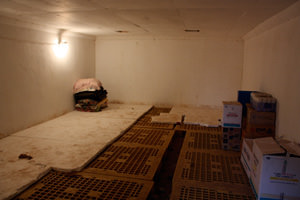


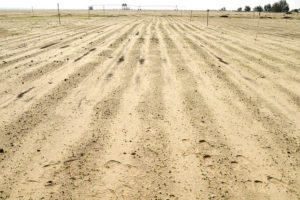
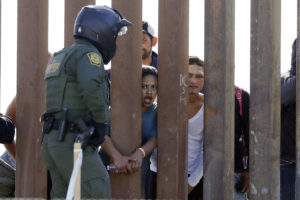

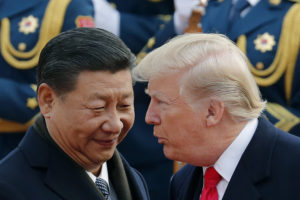
You need to be a supporter to comment.
There are currently no responses to this article.
Be the first to respond.